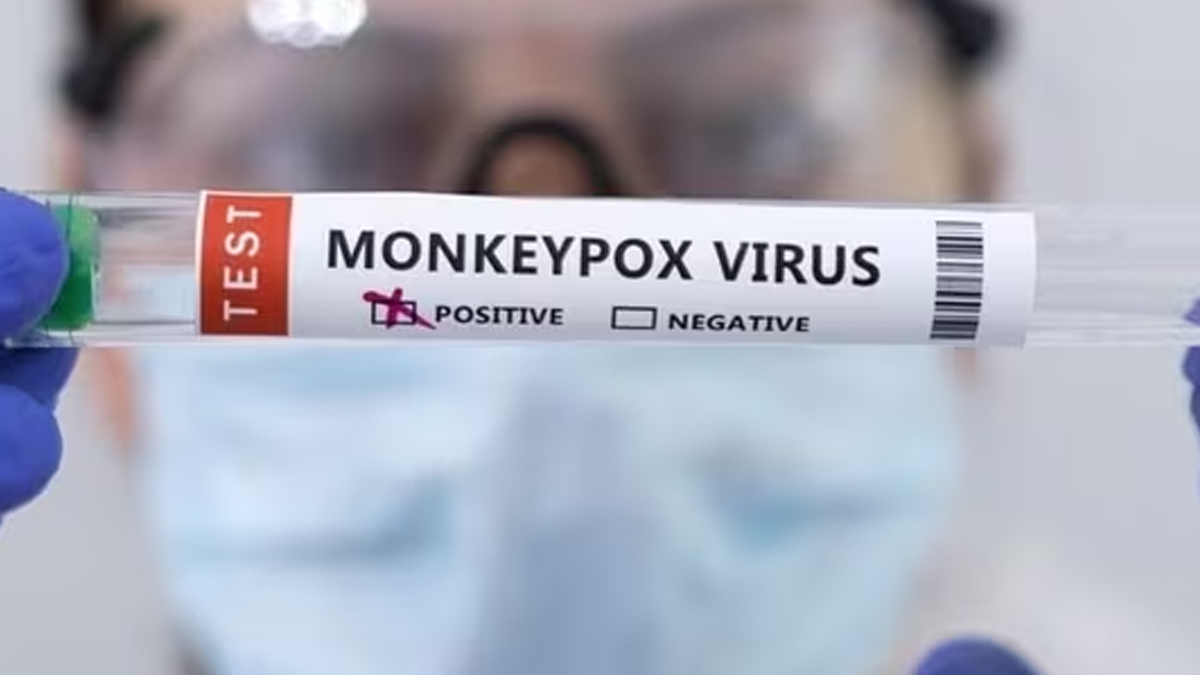
India has confirmed its first Mpox (previously known as monkeypox) case of 2024, sparking concerns about the country’s preparedness in the wake of its experience with the COVID-19 pandemic. A 26-year-old man from Hisar, Haryana, tested positive for the virus after returning from a country where Mpox is prevalent. The individual was admitted to Delhi's Lok Nayak Jai Prakash Narayan (LNJP) Hospital, presenting symptoms such as skin rashes and red boils. Following diagnostic tests, it was confirmed that he is infected with Mpox virus clade 2, according to the Union Health Ministry.
Table of Content:-
This case has raised red flags among public health officials and citizens alike, with fears of a potential health crisis. However, experts are reassuring the public that Mpox is unlikely to trigger a pandemic similar to COVID-19. Nevertheless, the country is taking proactive steps to manage the situation and prevent widespread transmission.
Understanding Mpox: What Is It?
Mpox is a viral zoonotic infection, meaning it is transmitted from animals to humans. Though previously known as monkeypox, the World Health Organization (WHO) recently renamed the virus to avoid any stigmatisation associated with its former name. Mpox is part of the same family of viruses as smallpox, though it is far less severe and has a lower fatality rate. Symptoms often include fever, headaches, muscle aches, swollen lymph nodes, and the hallmark rash that progresses to pustules before eventually scabbing over.

Transmission occurs primarily through close contact with an infected person’s bodily fluids, respiratory droplets, or contact with contaminated materials. While the virus can spread among humans, its transmission is far less efficient than viruses like COVID-19, which explains why experts believe it will not evolve into a global pandemic.
Health Authorities Respond: India’s First Case
India's first Mpox case in 2024 has sparked a swift response from healthcare authorities. The 26-year-old man who tested positive had recently returned from a country experiencing a Mpox outbreak. Upon arrival, he began experiencing symptoms such as rashes and boils and was promptly admitted to LNJP Hospital. His test results confirmed the infection, which is being closely monitored by the Union Health Ministry.
Also Read: Syphilis Cases At Highest Since 1950s In US; Symptoms To Look Out For
This new case has health officials on high alert. In light of the country’s past experiences with infectious diseases, particularly the COVID-19 pandemic, health authorities are taking no chances. A rapid response system is already in place, and hospitals are gearing up to manage potential cases, ensuring isolation and treatment protocols are implemented swiftly.
Lessons from COVID-19: Is India Prepared?
The global devastation caused by COVID-19 has significantly reshaped how India prepares for and handles infectious disease outbreaks. While COVID-19 took the world by surprise, countries now have more robust infrastructures and systems in place to tackle viral threats like Mpox. The Indian government has already implemented measures such as enhanced contact tracing, isolation of suspected cases, and testing procedures.
One key lesson from COVID-19 is the importance of a well-coordinated response. India has significantly ramped up its healthcare infrastructure, which includes designated isolation wards, increased testing capacity, and the availability of vaccines. These measures are now being adapted to tackle Mpox, ensuring that the country is better prepared for any potential spread.
WHO’s Take on Mpox: No Pandemic Fears
According to the World Health Organization (WHO), Mpox is unlikely to trigger a pandemic on the scale of COVID-19. The virus has limited transmission capabilities compared to highly contagious diseases like the coronavirus. While it is essential to remain vigilant, experts emphasise that Mpox is not expected to cause the same level of global disruption.
Also Read: Congo Receives Its First Mpox Vaccine Shipment To Combat Outbreak
Despite this reassurance, India’s health authorities are treating the situation with the seriousness it deserves. The government has urged states to remain on high alert, advising them to prepare isolation facilities and stockpile necessary medical resources. At the same time, officials are working to prevent public panic, urging citizens to remain calm but cautious.
Government Measures: Proactive and Prepared
India's Union Health Ministry has been quick to issue guidelines for managing Mpox cases. These guidelines emphasize the importance of wearing personal protective equipment (PPE), administering vaccines when necessary, and isolating confirmed cases to prevent further spread. Additionally, contact tracing efforts have been ramped up, and testing facilities are readily available across states.
State governments and union territories are encouraged to ensure that healthcare facilities are ready to handle any influx of Mpox cases. Isolation wards, testing labs, and medical staff are being prepped to respond quickly to new cases. The Health Ministry has also reiterated the importance of public education, urging authorities to disseminate accurate information to avoid the spread of misinformation and panic.
Bottomline: Remaining Cautious but Optimistic
India's first Mpox case in 2024 serves as a reminder of the ongoing threat of viral infections. While the country is far better prepared than it was during the early days of COVID-19, vigilance remains crucial. With strong contact tracing, isolation protocols, and healthcare infrastructure in place, India is taking the necessary steps to contain the Mpox virus and prevent a larger outbreak.
While the WHO has downplayed the chances of Mpox becoming a global health emergency, it’s important to stay informed and follow recommended guidelines. As India continues to monitor the situation, health authorities remain committed to ensuring public safety and minimizing any potential impact from this virus.
How we keep this article up to date:
We work with experts and keep a close eye on the latest in health and wellness. Whenever there is a new research or helpful information, we update our articles with accurate and useful advice.
Current Version